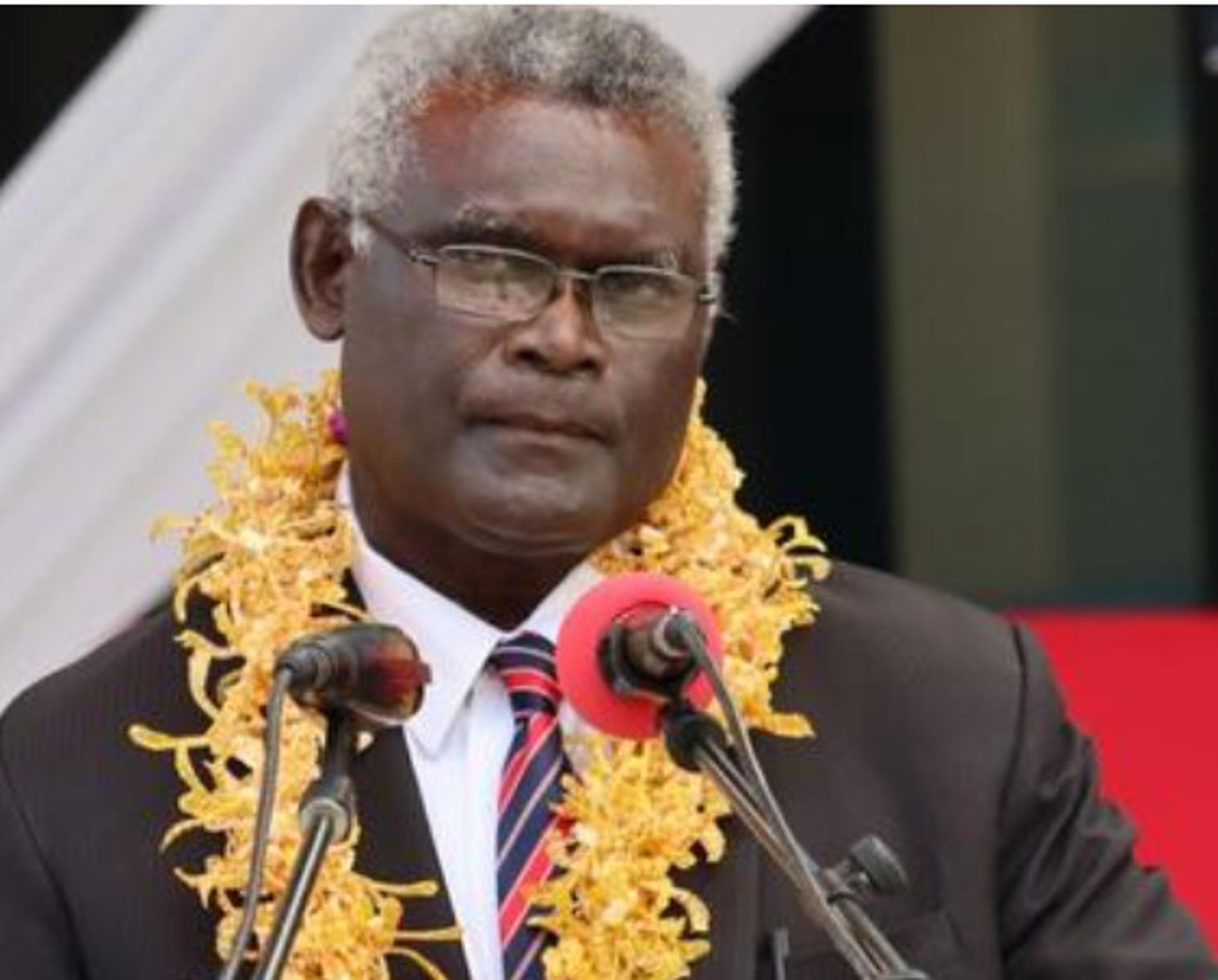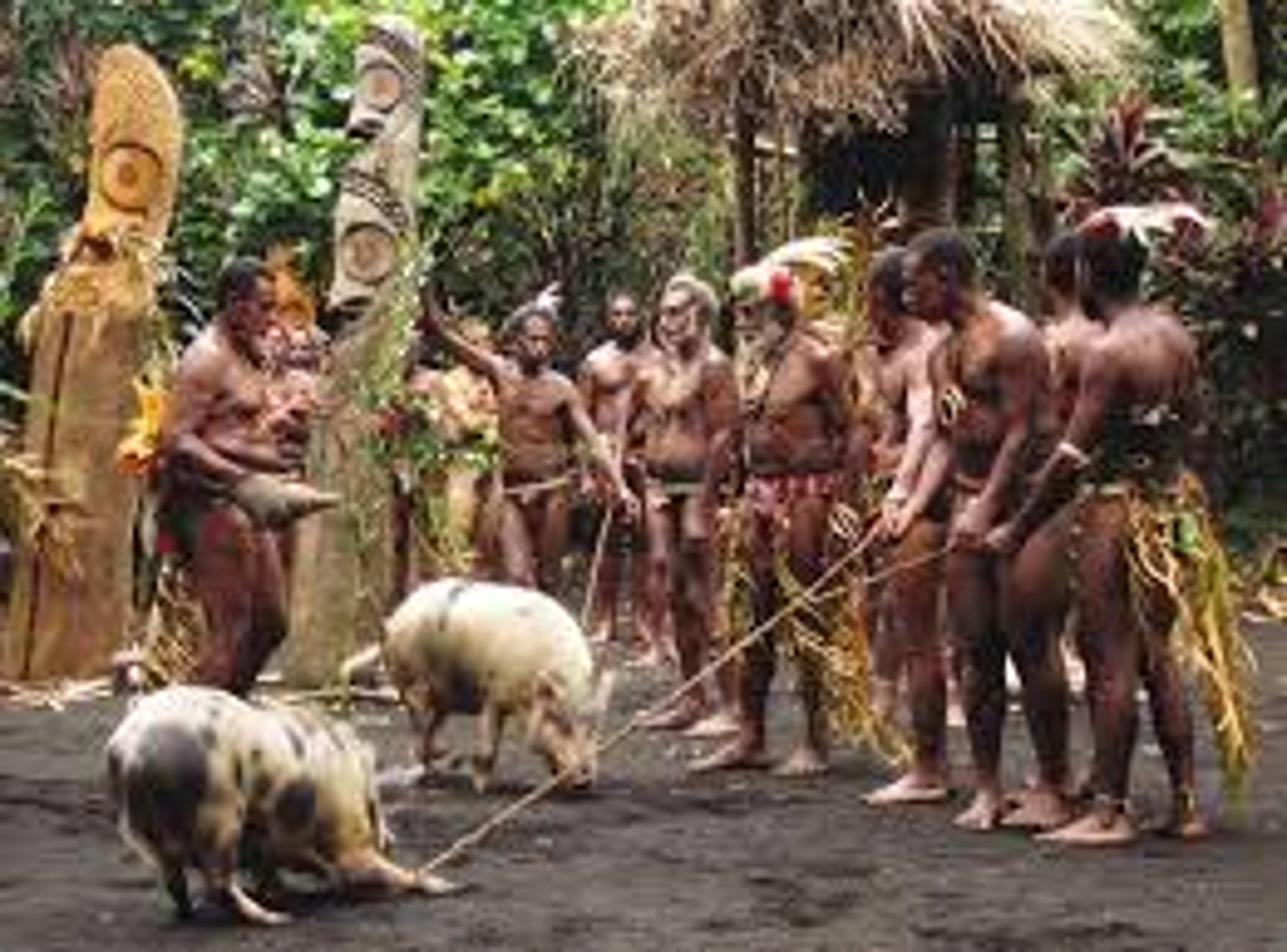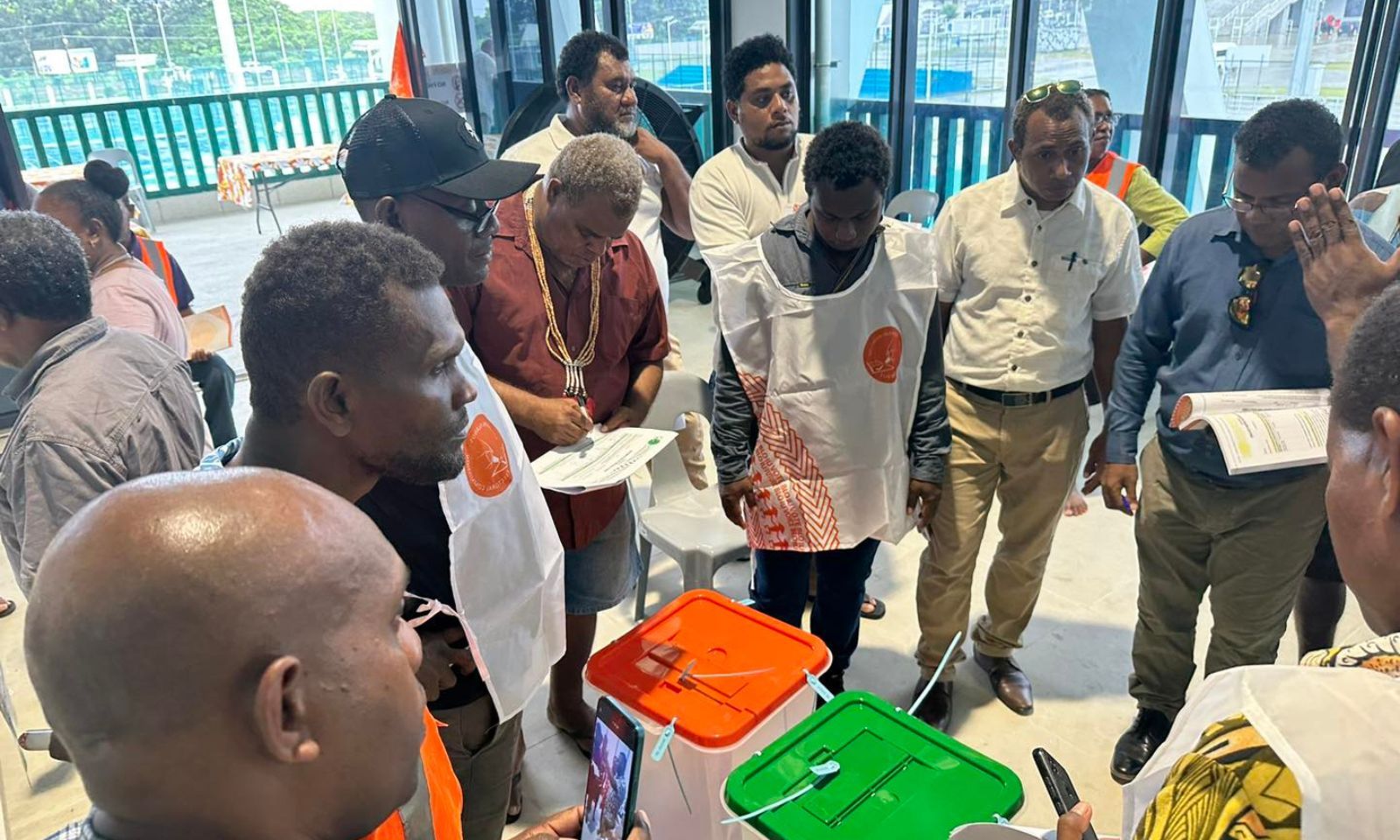

Incumbent Solomon Islands prime minister Manasseh Sogavare has been re-elected in the East Choiseul Constituency.
Photo/supplied
‘Too early to call’: Sogavare party ahead in Solomons elections but long way to go
Solomon Islands incumbent prime minister Manasseh Sogavare has won his constituency seat and his OUR Party has secured more than 30 per cent of the counted votes. But, as RNZ Pacific Editor Koroi Hawkins reports from the capital Honiara, the fight for the top job is still anyone's.


Pacific Warned: Global powers will act if island nations remain weak

From the friendly isles to Koroneihana: The Tongan hairstylist trusted with a Queen

Ancient DNA shows how Pasifika carried pigs across the ocean

Two seasonal workers found dead at Bay of Plenty orchard

Pacific Warned: Global powers will act if island nations remain weak

From the friendly isles to Koroneihana: The Tongan hairstylist trusted with a Queen

Ancient DNA shows how Pasifika carried pigs across the ocean
While his OUR Party has secured more than 30 per cent of the counted votes, Solomon Islands' incumbent prime minister Manasseh Sogavare is facing a tough challenge from other contenders for the top job, RNZ Pacific Editor Koroi Hawkins says.
Sogavare, whose government has been backed heavily by China since he severed ties with Taiwan for Beijing in 2019, was re-elected in the East Choiseul constituency on Monday.
Reporting from the Solomons' capital Honiara, Hawkins said it was "too early to call", five days after the country went to the polls to elect its provincial and national government representatives.
Watch Koroi Hawkins' interview below.
Contenders for prime minister include Sogavare and former prime ministers Rick Hou and Gordon Darcy Lilo, already among those returning to parliament with Lilo leading the count by a large margin in his Gizo/Kolombangara electorate.
By Monday, Sogavare's Ownership, Unity and Responsibility (OUR) Party had won 32 per cent of the counted votes, followed by the independents with 31 per cent, then the Development Party just below 17 per cent and the United Party with 6.1 per cent.
The Electoral Commission announced that 68 per cent of the parliamentary elections had been declared, 86 per cent in the provincial assembly and 82 per cent in the Honiara City Council.
Hawkins said he has been told to expect the full results early next month.
"Eighth [8 May] for the prime ministerial election," he told 531pi Pacific Mornings.
"Once all of the results are in, which we're hoping will be this week, they will gazette the results, they'll be made official, and then the Governor-General will sort of call for a first sitting of parliament for parliamentarians to come through, and get sworn in, take their oaths, and all of the lobbying around forming a government and putting up a candidate for prime minister will be done in this period.
“After the 50 MPs are elected, they gather together and form coalitions. They look at parties and what they can do together and then decide and appoint who they want as prime minister.
“So it is a bit of a way off yet. Once we know what the final results then we'll sort of know what the big camps will be and which sides they'll be."
He said there was a strong showing from Sogavare and the independents, "so the other minor parties will probably need to close ranks if they are to get any traction.

Electoral officials are facing challenges
"The sooner a group has the numbers to form a government, it usually happens quite quickly. It depends on how willing each of the parties in this election are to compromise and to work together to get to that end."
With more than 60 per cent of the national results in, two female MPs have been elected and three former prime ministers could be in the running for PM, he said.
Women make up six per cent of the 334 candidates with 20 of them contesting these elections, down five from the 2019 polls.
Hawkins' earlier predictions included fewer women in this parliament. But he said there could be more.
"Three out of the four women MPs in the previous parliament were proxy candidates, meaning their husbands were basically convicted of corruption and lost their seats and immediately stood their wives in their place.
"There were at least three, two who came through in that matter, and one was from the death of a husband and the wife stood in his place.
"So, there was only one woman in the previous parliament. There was one on her own steam in her campaign. This election and the results we're getting, we just had one confirmed and one that is provisional but yet to be confirmed."
The incumbent MP, Freda Soria Comua, and independent candidate Choylin Douglas have made it to Parliament, he said, while another independent candidate, Cathy Nori, has been mentioned in provisional results but is yet to be confirmed.
"We will have three actual women independent candidates in this parliament so far. But again, there were four in the last one. Still, a bit to go, but at the moment there are three women in parliament, two officially, and one we are looking forward to being confirmed today."
Hawkins said the Electoral Commission was facing challenges, with human error and counting venue complications hampering their work.
Watch Koroi Hawkins' earlier interview on 531pi Pacific Mornings.
He said the Solomons is geographically dispersed and this could be logistically challenging for the 7000 officials involved in the joint elections.
“There’s been a lot of logistical challenges. This is an island chain spread across a vast area of the Pacific Ocean.
“There's been a lot of help from regional partners. The New Zealand Defence Force was here helping to fly out ballot boxes and election materials early on.
"And that's part of the reason why it's been really slow - getting those election materials to the counting centres.
“Also, this is the first time that they're holding joint elections, for the provincial and national.
"There has been a little bit of a process there and they did change one thing, to verify ballot boxes across the whole constituency before counting so that further slowed things down.
“There's been a little bit of human error here and there, in terms of some of the ways things have been processed and different materials that have been used incorrectly, but it's all been administrative to this point."
This is the first election since the Solomon Islands cut ties with Taipei in 2019 and reaffirmed Honiara's connection with Beijing.
Some of Sogavare’s rivals for the top job have vowed to return ties to Taiwan.
In early 2022, Sogavare signed a security agreement with China, leaving the United States and its closest allies in the Pacific region, including New Zealand and Australia, uneasy.